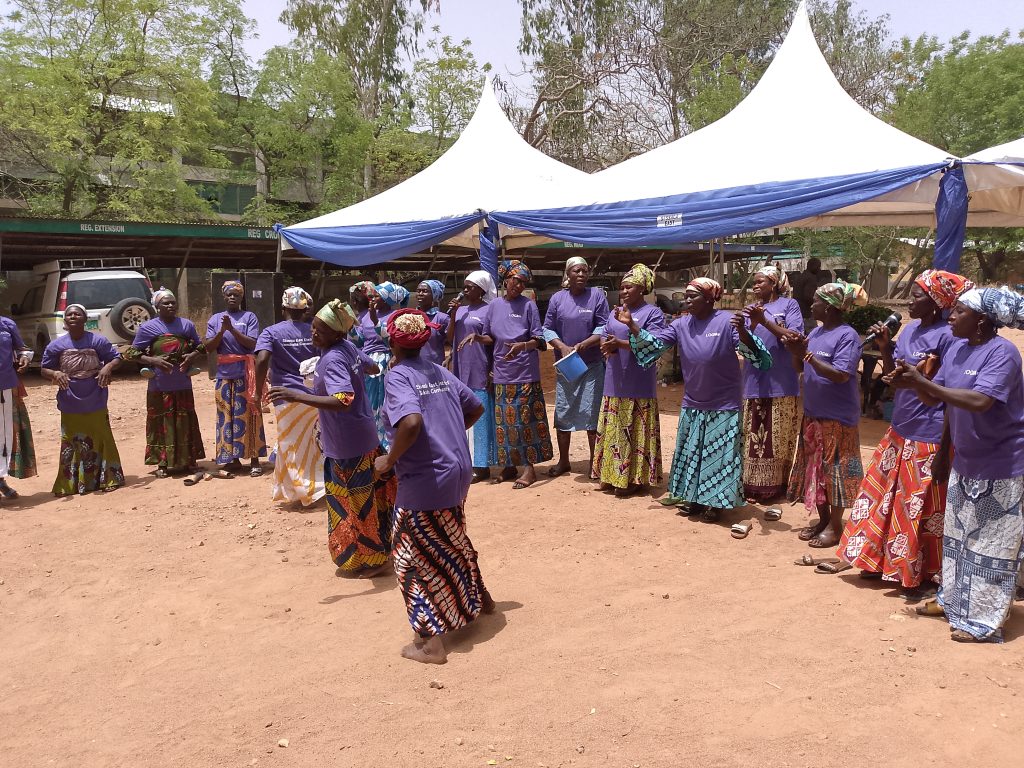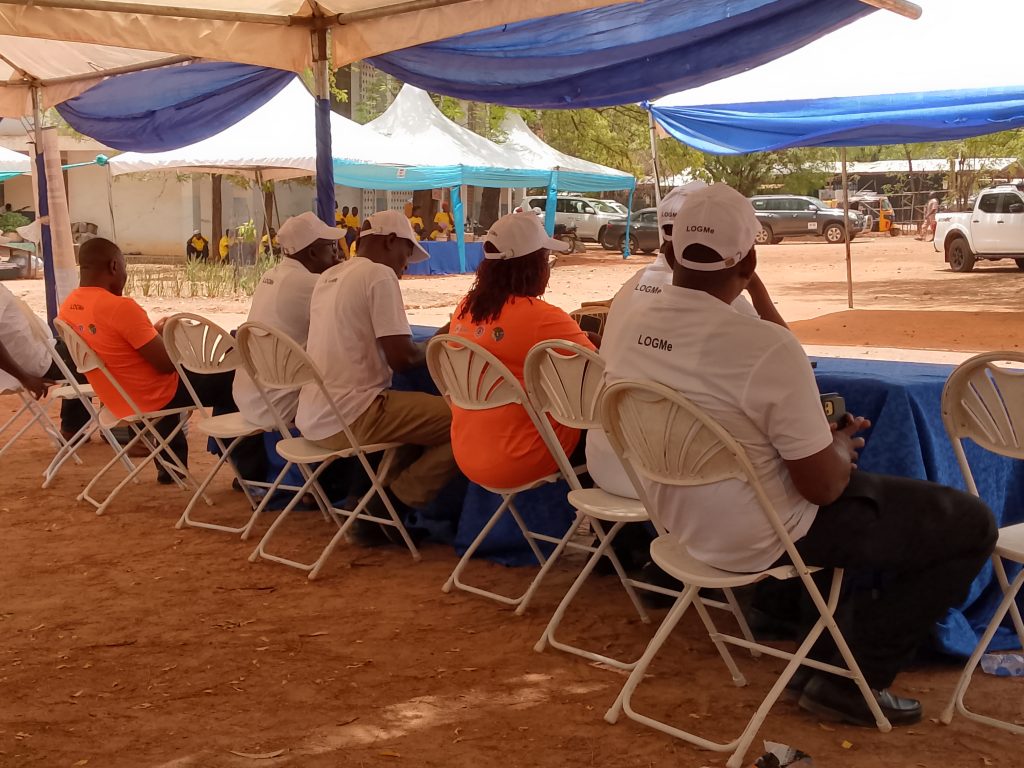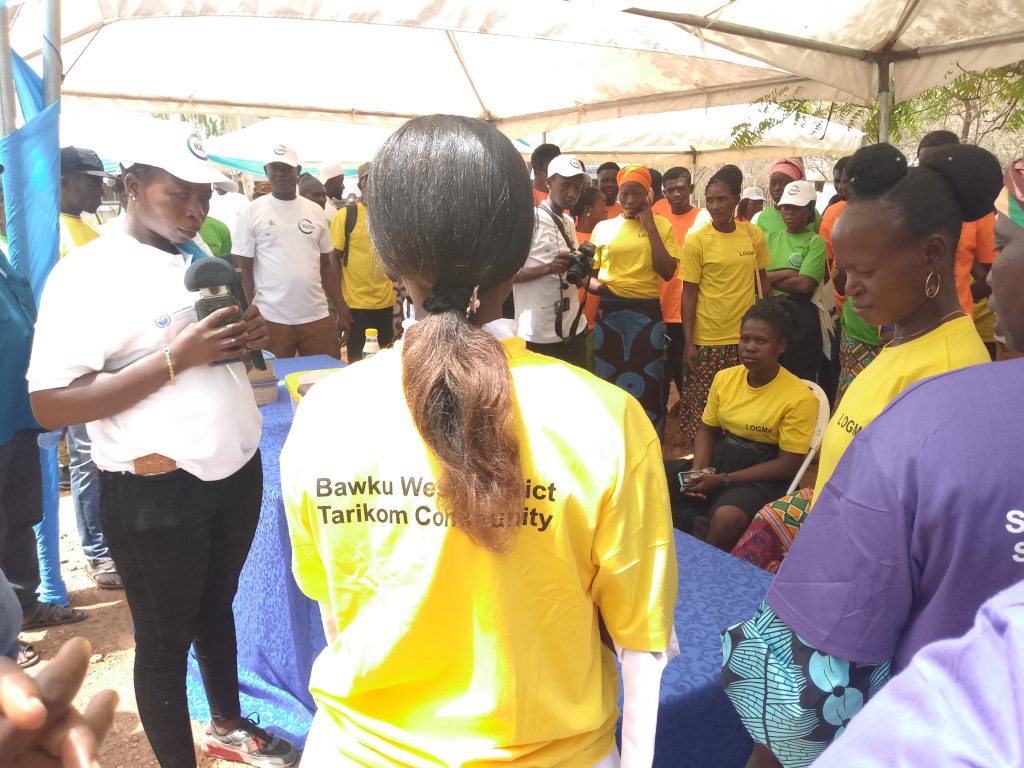Fatima Anafu-Astanga
Bolgatanga, (U/E), April 18, GNA- A Dry land product fair has been held in Bolgatanga in the Upper East Region under the Land of Opportunities for Global Mechanism in the Sahel dubbed LOGMe project for its beneficiaries and partners.
The fair aimed at providing beneficiaries with an opportunity to display products and skills acquired through the capacity-building training during the three-year implementation period.
Among the items displayed were mostly maize and soybean products such as soymilk, khebab, honey, leafy vegetables, shea butter, soap, and pomade produced by some of the women’s groups in Upper East Region, while some partners showcased agricultural inputs and equipment.

As part of the ongoing skill development and knowledge sharing with beneficiaries, the CSIR staged a panel discussion on Climate Change and Climate Smart Agriculture (CSA) to increase understanding on the need to adopt these strategies to improve production.
Dr Julius Yirzagla, the Co-Principal Investigator (Co-PI) with SARI on the LOGMe project, said Sustainable agriculture was a viable option for all in the face of global food insecurity and more efforts were required not to compromise the ability of future generation to produce enough food.
Dr Iddi Yahya, the Principal Investigator of the IUCN project in an earlier address, thanked all who had contributed to the achievements of the project, especially the beneficiaries through the partners namely CSIR SARI, EPA and A Rocha Ghana.
He expressed gratitude to the IUCN, the UNCCD and the Italian Ministry for supporting the project and helping in the gains made so far and encouraged all partners to help in market linkages of the beneficiaries.

In his opening address, the Chairman, who is also the Talensi District Director of Agriculture, Mr Matthew Sulemana was grateful for the level of cooperation with partners of the project towards successful implementation of the project, especially in addressing soil fertility and agronomic practices to increase yields of maize and soybeans.
He reiterated the improvements made in agriculture production, food security and commended the funders, partners and beneficiary communities for impacting many lives through the project.
The LOGMe project which started in 2020 and with an addition year in 2024 is being implemented by the International Union for Conservation of Nature (IUCN) in response to dwindling and degradation of the Sahelian landscape, affecting rural livelihoods that is aggravated by impacts of climate change, including increasing droughts and floods.

Funded by the Italian Ministry for Ecological Transitions, through the United Nations Convention to Combat Desertification (UNCCD), the three-year project is being implemented in Ghana, Burkina Faso, and Niger with the goal of contributing to achievement of the Sustainable Development Goal 15 (Life on Land).
In Ghana, the main implementing partners are CSIR-SARI, A Rocha Ghana (ARG), and the Environmental Protection Agency (EPA) in eight (8) communities in four districts in Upper East and
In the Builsa South District are Dalaasa and Naadema, In Talensi District are Yameriga and Awaradone and in Bawku West are Tarikom and Gbango communities whilst in the Sissala East District the Nanchala and Saakalu communities are beneficiaries.
The CSIR-SARI’s objective is to improve the Livelihoods of Rural Communities by Establishing Sustainable Production of High Value Drylands Products to Connect Local Producers to International Markets.
Among other attendees were some partners under the LOGMe namely A Rocha Ghana (ARG), and the Environmental Protection Agency (EPA) and the International Union for Conservation of Nature (IUCN)
GNA